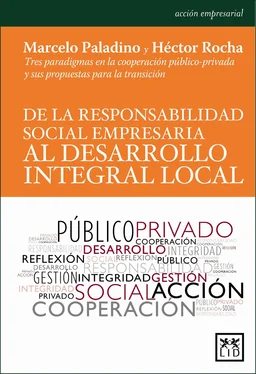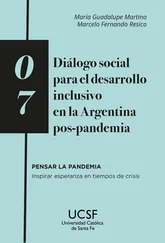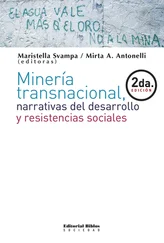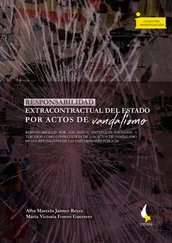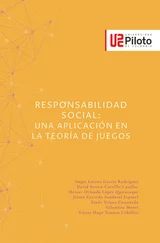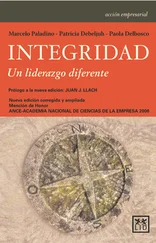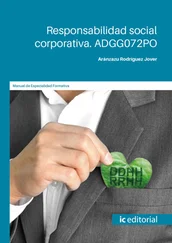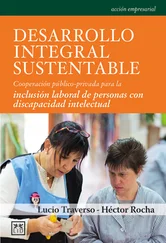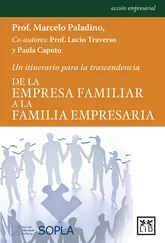Kliksberg, B. (2011), Escándalos Éticos, Temas Grupo Editorial, Buenos Aires.
Llano, C. (1994), El postmodernismo en la empresa, McGraw Hill/IPADE, México.
——— (1997), Dilemas Eticos de la Empresa Contemporánea, Fondo de Cultura Económica, México.
Logan, D., D. Roy, L. Regelbrugge y F. Hitachi (1997), Global corporate citizenship: rationale and strategies, Washington, DC: Hitachi Foundation.
Marsden, C. y J. Andriof (1998), “Towards an understanding of corporate citizenship and how to influence it”, Citizenship Studies, vol. 2, n° 2, pp. 329-352.
Martínez-Echeverría, M.A. (2005), “Dirigir empresas: de la teoría a la realidad”, EIUNSA, Madrid.
McIntosh, M. D., K. J. Leipzegen y G. Coleman (1998), “Corporate Citizenship - Successful Strategies for Responsible Companies”, Financial Times Management.
Melé, D. (1998), Ética en la actividad financiera, EUNSA, España.
——(2007), “La persona en el centro de la empresa”, Economía Aragonesa , pp. 75-88.
Moss Kanter, R. (1995), World Class: Thriving Locally in the Global Economy, Nueva York.
Naciones Unidas (2010), “A Global Compact for Development”, Global Compact Office, June.
Nahapiet, J., L. Gratton y H. O. Rocha (2005), “Knowledge and Relationships. When Cooperation is the Norm”, European Management Review, vol. 2, n° 1, pp. 3-14.
Paladino, M. (ed.) (2004), “La Responsabilidad de la Empresa en la Sociedad. Construyendo la sociedad desde la tarea directiva”, Emecé, Buenos Aires.
——(2007), “Business for Social Responsibility (BSR)”, en Kolb, R. ( ed.), Encyclopedia of Business Ethics and Society, SAGE, London, pp. 235-237.
Paladino, M. y P. Delbosco (2010), Dar sentido a la Empresa, Temas, Cap. 4, Buenos Aires.
Paladino, M. y A. Milberg (2004), “Conceptos y tendencias”, Cap. 1 en Paladino, M. (Ed.) (2004), La Responsabilidad de la Empresa en la Sociedad. Construyendo la sociedad desde la tarea directiva , Emecé, Buenos Aires.
Pérez López, J. A. (ed.) (1993). Fundamentos de la Dirección de Empresas, Rialp, Madrid.
Polo, L. y C. Llano (1997), Antropología de la acción directiva, AEDOS, Madrid.
Porter, M. E. y M. R. Kramer (2011), “The Big Idea: Creating Shared Value”, Harvard Business Review, vol. 89, n° 1, 2.
Prahalad, C. K. (2005), The fortune at the bottom of the pyramid. Erradicating poverty through profits, Wharton School Publishing, Upper Saddle River: NJ.
Preston, L., J. E. Post y S. Sachs (2002), Redefining the Corporation: Stakeholder Management and Organizational Wealth, Stanford University Press, California.
Rocha, H. O. (2004), “Entrepreneurship and Development: the Role of Clusters”, Small Business Economics, vol. 23, n° 5, pp. 363-400.
——— (2006), “The Entrepreneurship and Cluster Foundations of Development: Theoretical Perspectives and Latin American Empirical Studies”, en Cooper, A., S. Álvarez, A. Carrera, L. Mezquita y R. Vassolo (eds.), The New Entrepreneurs: Emerging Market Strategies, Blackwell Strategic Management Society Book Series, London, pp. 114-159.
——— (2008). “People, Firms and Society. Three Proposals for Aligning Personal Motives, Firm’s Goals and Societal Needs.” 1st IESE Conference, “Humanizing the Firm & Management Profession”, Barcelona, IESE Business School, June 30-July 2, 2008. Available at SSRN: http://ssrn.com/abstract=1295193or http://dx.doi.org/10.2139/ssrn.1295193.
——— (2011a), “El sistema decisorio y los stakeholders ante decisiones de alto impacto. Hoy: el sida”, IAE Business School, Buenos Aires.
——— (2011b), “Safari al desarrollo”, Revista de Antiguos Alumnos - Año XVIII. IAE.
——— (2012), “Nuevas Realidades, Responsabilidad Social Empresria y Misión de la Empresa”, IAE Business School, Buenos Aires.
Rocha, H. O. y J. Birkinshaw (2007), “Entrepreneurship safaria phenomenon-driven search for meaning”, Foundations and Trends in Entrepreneurship, vol. 3, n° 3, pp. 205-255.
Rocha, H. O. y S. Ghoshal (2006), “Beyond Self-Interest Revisited”, Journal of Management Studies, vol. 43, n° 3, pp. 585-619.
Rocha, H. O., A. Willi y D. Ibarlucea (2011), “New York Declaration by Business (A)”, IAE Business School, IAE-C000-03213-SP. (es un case-study)
Saether, K. T. y R. V Aguilera (2008), “Corporate Social Responsibility in a Comparative Perspective”, en Crane, A., et ál. (PDF). (ed.), The Oxford Handbook of Corporate Social Responsibility, Oxford University Press, Oxford.
Selznick, P. (1957), Leadership in Administration: A Sociological Interpretation, Row and Peterson, Evanston, IL.
Sen, A. (1999), “Does Business Ethics Make Economic Sense?”, en Donaldson, T. y Werhane, P. (eds.), Ethical issues in Business : A Philosophical approach , Prentice Hall, New Jersey.
Sethi, S. P. (1975), “Dimensions of corporate social performance: An analytical framework”, California Management Review, vol. 17, n° 3, pp. 58-64.
Sohn, H. (1982), “Prevailing Rationales in RSE Debate”, Journal of Business Ethics vol. 1, pp. 139-144.
Solomon, R. C. (1999), A better way to think about business: How personal integrity leads to corporate success, Oxford University Press, USA.
Stein Martínez, G. (2000), “Management y el arte de gobernar según Peter Druker”, Harvard Deusto business review , n° 95, pp. 36-42.
Waddock, S. y N. Smith (2000), “Relationships: The real challenge of corporate global citizenship”, Business and Society Review, vol. 105, n° 1, pp. 47-62.
Waddock, S. A. y S. B. Graves (1997), “The corporate social performance-financial performance link”, Strategic Management Journal , vol. 18, n° 4, pp. 303-319.
Wood, D. J. (1991), “Corporate social performance revisited”, Academy of Management Review, vol. 16, n° 4, pp. 691-718.
Yunus, M. (2003), Banker to the Poor: Micro-Lending and the Battle Against World Poverty, PublicAffairs, New York.
Конец ознакомительного фрагмента.
Текст предоставлен ООО «ЛитРес».
Прочитайте эту книгу целиком, купив полную легальную версию на ЛитРес.
Безопасно оплатить книгу можно банковской картой Visa, MasterCard, Maestro, со счета мобильного телефона, с платежного терминала, в салоне МТС или Связной, через PayPal, WebMoney, Яндекс.Деньги, QIWI Кошелек, бонусными картами или другим удобным Вам способом.
